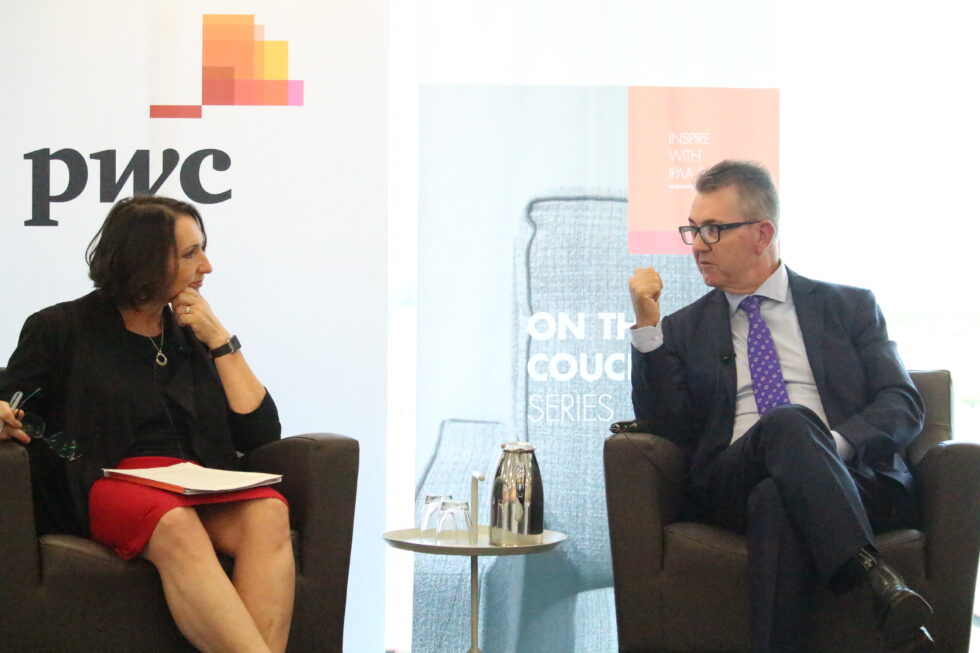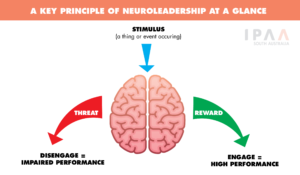
The PwC Skilled Service Hub is Australia’s national onshore delivery centre based in Adelaide, it supports clients across Australia to solve their most important problems. Having already hired over 100 new staff since July, the Skilled Service Hub team is continuing to grow and they now have more job opportunities available. The Skilled Service Hub is already in operation across Cybersecurity and Cloud capabilities to help drive economic growth for the South Australian and national economy across a wide range of industries.
PwC is currently hiring 150+ roles through the PwC Australia Skilled Service Hub in the following teams:
Whether you are an intern / recent graduate, Associate, Senior Associate, Manager or Senior Manager there are a range of jobs currently available to grow and develop in the sector. If you know someone interested in a role in the above disciplines, then click the link to find out more information.
You can also read about the PwC Australia Skilled Service Hub launch in May 2021 here >





Find out more about the Skilled Service Hub and current job opportunities here.
Learn more
Our lives are becoming more entwined with, and dependent upon, digital technologies. These technologies are presenting exciting opportunities to improve our citizens’ quality of life, but there are also risks to individuals, society, trust in government and our democracy that need to be addressed.
To better understand how prepared the South Australian Public Sector is for these challenges, Flinders University is conducting a survey. The responses collected will be used to develop training to equip public servants with the knowledge, skills and mindsets needed to help South Australia thrive in the digital age. This is a vital piece of research that will help support our sector grow and develop, and with your input we can make a real difference in how we move forward into the future. Complete the survey here >
The survey takes about 10 minutes to complete and responses are confidential. It closes at midnight on 1 October 2021.
Once the survey is complete, you have the option to participate in a prize draw to win 1 of 3 Bunnings gift cards worth $40.
The survey is being undertaken by Flinders University and is part of a research project which investigates social cyber awareness in public sector leaders and if it improves through an education program. Full details of the research project (including confidentiality, privacy, use of the data and contact details for the research team) can be found here. The project has been approved by Flinders University’s Human Research Ethics Committee (Project Number: 4686).
If you have questions about the survey, please contact Tammy Joachin, Lead – Executive Education, Jeff Bleich Centre (Flinders University) on 0401002719 or tammy.joachin@flinders.edu.au






Flinder’s University Public Sector Readiness for the Digital Era Survey
Complete the SurveyThe Institute of Public Administration Australia is pleased to announce that funding has been awarded to three new public administration research projects.
The grants from the Public Administration Research Trust Fund — which IPAA manages in partnership with the University of Canberra’s Centre for Change Governance — will support research into the ethical application of artificial intelligence, the career pathways of Federal ministerial staff once they leave a minister’s office, and the capabilities associated with the implementation of social procurement.
Caroline Walsh, IPAA’s National Executive Director, said that the three research projects will deliver real-world insights for public servants and those involved in the wider public purpose sector.
“We are really pleased to be able to support these research projects into areas of public administration that are topical and important to the profession, not only now but into the future.”
Grants were awarded to:
Professor Darren Sinclair, Director of the Centre for Change Governance at the University, said that the partnership demonstrated the benefits of university collaboration with a member-based organisation like IPAA that promotes excellence and pride in public service across Australia.
“Public administration is undergoing a period of rapid transformation, with the advent of digitisation and big data, together with new and demanding challenges such as COVID-19, and the need to addresses integrity, diversity and inclusion.
It is more important than ever, therefore, for academics to provide research insights to practitioners — this can only happen with funding, which the IPAA has generously provided to three excellent projects”.
The research findings from these projects will be made available by IPAA and the University of Canberra in due course.
More information on the research fund is available from the Public Administration Research Trust Fund page on IPAA’s national website.
To see original article, visit the IPAA National website here.



The term ‘Emotional Intelligence’ entered our management vocabulary in the late 90s and is now part of the vernacular in most workplaces. Despite this 20 year ‘history’, there is still much debate about what it is…and isn’t.
Emotional Intelligence (EI), also known as Emotional Quotient (EQ) is a person’s ability to understand and manage their own emotions. Having this understanding will help to better manage stress, communicate effectively, empathise with others and defuse conflict by having better social awareness. There are 5 key elements which help to define emotional intelligence:
According to the Global Talent Trends 2020-21 Report by Mercer (2021), the Top 3 Critical Skills for Future Resilience are Adaptability, Collaboration and Inclusive / Empathetic Management. It will therefore be vital for managers to develop their own emotional intelligence to better manage their own decisions and actions. By having greater self-awareness, managers are better equipped to support their team and foster stronger relationships.
It is important to have relevant technical skills to perform your work role effectively , however as we become less physically connected it has become even more important to have strong interpersonal skills.
To learn more about Emotional Intelligence and how you can create a positive EQ/EI workplace, register for our Emotional Intelligence course which is part of our our Emerging Executive Development Series. This half day program will review the dominant theories and explore the agreed aspects of EI/EQ and how participants can enhance their competence in this critical business skill.
References
Janove, J 2020, ‘Leaders and Employees Need Soft Skills Now More than Ever’, SHRM, viewed 17 August 2021, <https://www.shrm.org/resourcesandtools/hr-topics/employee-relations/humanity-into-hr/pages/covid-19-soft-skills-at-work.aspx>.
Mercer 2021, ‘2021 Global Talent Trends Study’, Mercer, viewed 17 August 2021, <https://www.mercer.com/our-thinking/career/global-talent-hr-trends.html#contactForm>.



Dr Alex Antic is a leader, consultant and advisor on analytics, data science and artificial intelligence, and will speak at the 2021 IPAA National Conference, Riding the Wave of Service Transformation, being held in Brisbane on 14–15 October 2021.
Alex has more then 18 years post-PhD experience and knowledge in areas that include advanced analytics, machine learning, artifical intelligence, mathematics, statistics and quantitative analysis, developed across multiple domains: Australian and State Government, Asset Management, Insurance, Academia, Banking (Investment and Retail) & Consulting.
In 2021 Alex was recognised as one of the Top 5 Analytics Leaders in Australian by the Institute of Analytics Professionals of Australia. He also holds several senior advisory roles across industry, government, start-ups and academia.
Alex has a PhD in Applied Mathematics, First Class Honours in Pure Mathematics, and a double-degree in Mathematics and Computer Science.
The 2021 IPAA National Conference will be delivered at Brisbane’s Hilton Hotel, with live stream tickets available for those unable to attend in person.
Early bird tickets are available until 31 August 2021. For tickets and more information, visit the 2021 IPAA National Conference website.
Original article from IPAA National Website.






Dr David Rock from the NeuroLeadership Institute is set to deliver a keynote address at the 2021 IPAA National Conference this October.
Neuroleadership has come into the spotlight in recent years, with Dr Rock, in fact, coining the term ‘Neuroleadership’ in recognition that a more concrete, science-based approach to growing soft skills would not just resonate with organisational leaders but also make any change initiative more effective.
Applying Neuroleadership Approaches to ‘Ride the Wave of Transformation’
The theme of this year’s National Conference ‘Riding the Wave of Transformation’ will reflect upon the opportunities and changes we have faced as a public service in recent times, and what the future might look like. Neuroleadership approaches to leadership can provide us with new ways to build a positive culture in the workplace that enhances performance and outcomes by understanding the innate psychological principles influencing the behaviour and responses of staff.
In this article ‘How you can apply Neuroleadership to manage others’ we explore the key principles of neuroleadership at a glance. As a topic that many of us might have encountered at only a cursory level, it’s important to understand how this area of leadership development can help you in leading teams or organisations that are engaged, satisfied, productive and motivated. The vital principle of the ‘threat – reward’ response illustrated below highlights the positive outcomes of environments that put our brains in the reward state, and in turn, the adverse effects of perceived threats in the environment.

You can take the next steps in applying neuroleadership principles to your leadership style with several opportunities coming up…
The NeuroLeadership Institute is now a 23-year-old cognitive science consultancy that has advised more than 50% of the Fortune 100. With operations in 24 countries, the Institute brings neuroscientists and leadership experts together to make organisations better for humans through science. David has a professional doctorate in the Neuroscience of Leadership, and is the author of four books including Your Brain at Work, a business-bestseller. He has written for and been quoted in hundreds of articles about leadership, organizational effectiveness, and the brain which can be found in Harvard Business Review, The New York Times, The Wall Street Journal, Business Insider, CNBC, Forbes, Fortune, Inc., USA Today, BBC, The Boston Globe and more.


